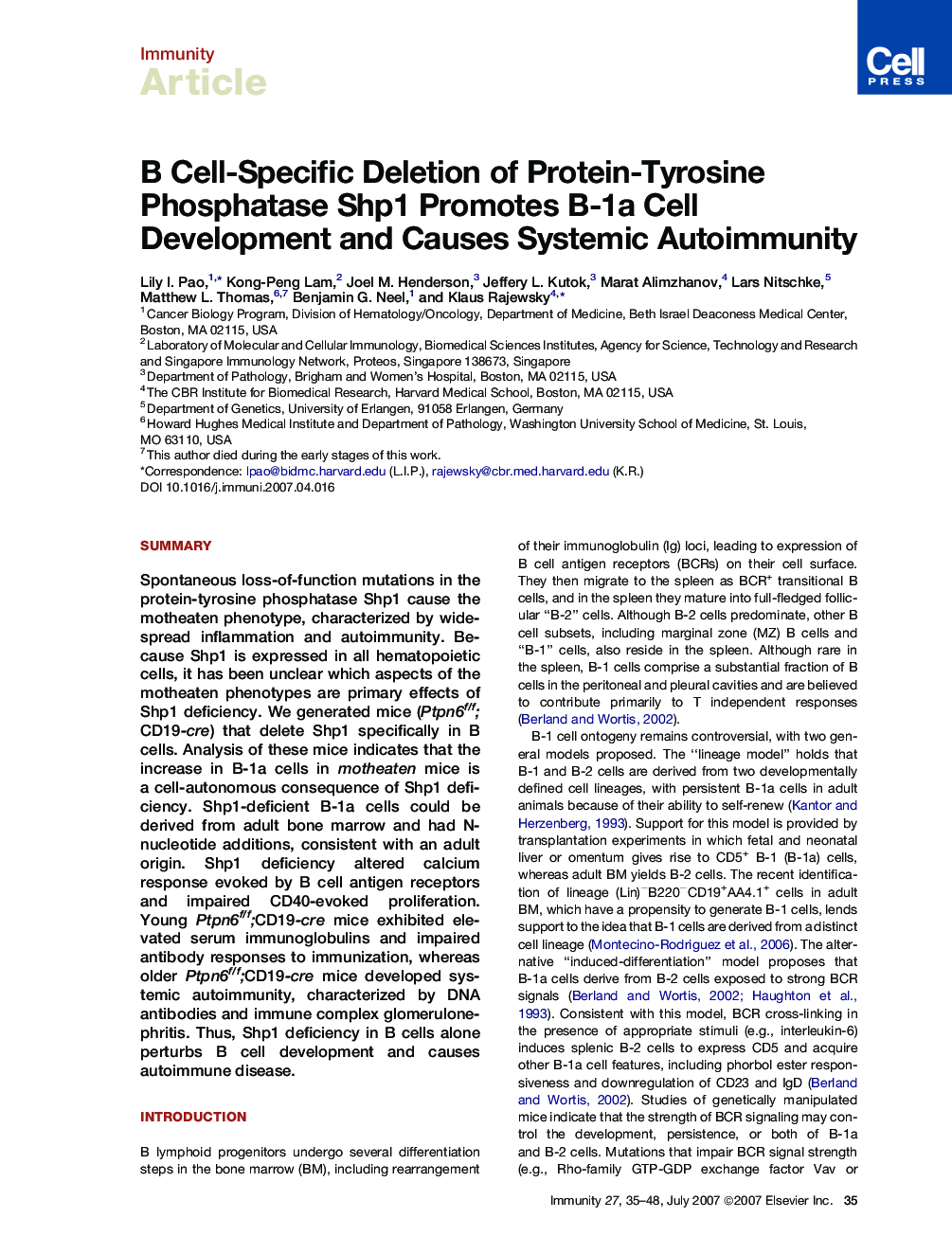| کد مقاله | کد نشریه | سال انتشار | مقاله انگلیسی | نسخه تمام متن |
|---|---|---|---|---|
| 3353839 | 1216892 | 2007 | 14 صفحه PDF | دانلود رایگان |

SummarySpontaneous loss-of-function mutations in the protein-tyrosine phosphatase Shp1 cause the motheaten phenotype, characterized by widespread inflammation and autoimmunity. Because Shp1 is expressed in all hematopoietic cells, it has been unclear which aspects of the motheaten phenotypes are primary effects of Shp1 deficiency. We generated mice (Ptpn6f/f;CD19-cre) that delete Shp1 specifically in B cells. Analysis of these mice indicates that the increase in B-1a cells in motheaten mice is a cell-autonomous consequence of Shp1 deficiency. Shp1-deficient B-1a cells could be derived from adult bone marrow and had N-nucleotide additions, consistent with an adult origin. Shp1 deficiency altered calcium response evoked by B cell antigen receptors and impaired CD40-evoked proliferation. Young Ptpn6f/f;CD19-cre mice exhibited elevated serum immunoglobulins and impaired antibody responses to immunization, whereas older Ptpn6f/f;CD19-cre mice developed systemic autoimmunity, characterized by DNA antibodies and immune complex glomerulonephritis. Thus, Shp1 deficiency in B cells alone perturbs B cell development and causes autoimmune disease.
Journal: - Volume 27, Issue 1, 27 July 2007, Pages 35–48